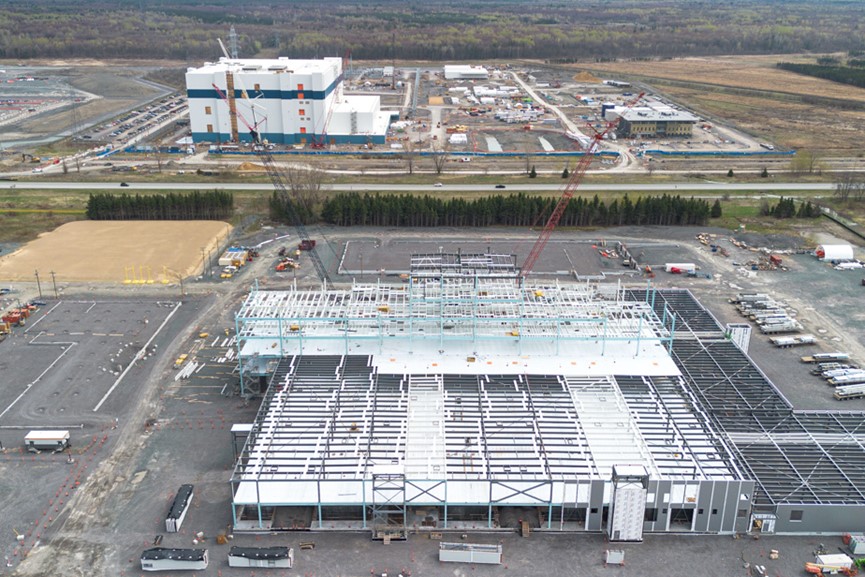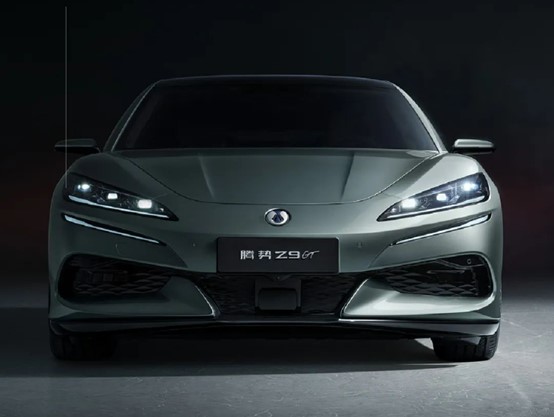The media Korea Herald reported on August 17th that due to increasing uncertainty surrounding Ford's electric vehicle strategy, the cathode material plant in Bécancour, Quebec, a joint venture between Ford and South Korean companies EcoPro BM and SK On, has been halted for the second time this year.
According to the report, construction of the battery material plant began in August last year and was initially paused in April this year due to issues with selecting a contractor and finalizing the facility design. At the time, Quebec Premier Francois Legault explained that the delay in April was necessary to carefully analyze the best technological options for the plant’s chemical processes to ensure the facility would be equipped to meet future needs.
After a month of suspension, construction resumed in late May. However, La Presse reported on August 13th that the project has been at a standstill since August 5th due to a redesign of the facility. This redesign is not just a minor adjustment but part of a broader reevaluation of the approaches as they navigate the evolving challenges in the electric vehicle market.
A spokesperson for EcoPro CAM Canada, the local subsidiary managing the project, stated that "fluctuations in electric vehicle demand" and "changes in battery preferences" are the main reasons for the reevaluation. The spokesperson assured that construction will continue once the redesign is finalized. EcoPro did not mention a specific date to resume work but hinted that it might be in September according to insiders.
La Presse also reported that the three project partners are facing significant financial pressures due to declining electric vehicle demand and the shifting dynamics during the transition of the automotive industry to electrification.
In August 2023, EcoPro BM, Ford, and SK On grandly announced a $1.2 billion investment to build the lithium-ion battery cathode material plant. The Quebec province and Ottawa have pledged $640 million in funding for the project. The plant was designed to produce 45,000 tons of active material annually and was originally scheduled to be operational in the first half of 2026. However, with the latest delay, this timeline has now been pushed to 2027.
It is also reported that Ford was supposed to become the controlling shareholder of the joint venture after obtaining land permission from Bécancour authorities in February 2023, but ultimately, a subsidiary of the South Korean company EcoPro BM gained control of the plant property. Nevertheless, Ford remains part of the joint venture.
The root of the suspension of the material plant seems to be related to the strategic adjustment of Ford in the field of electric vehicles. Ford has recently adjusted its priorities for electric vehicle development, planning to launch a new commercial vehicle in 2026, followed by two new electric pickup trucks in 2027 (including an affordable mid-size electric pickup), and other affordable models in the future. The originally planned all-electric three-row SUV will become a hybrid model. Ford has reduced the annual investment ratio of pure electric vehicles from 40% to 30%, focusing more on hybrid vehicles. Considering the launch of affordable models, Ford's BlueOval battery park in Michigan is expected to begin producing lithium iron phosphate batteries in 2026 – the reevaluation of the Canadian battery material plant may be directly related to this.
Ford's Model e division continued to suffer losses in the first two quarters of 2024. Previously, Ford abandoned its goal to sell only electric vehicles in the European market by 2030. Another project in Canada was also canceled in mid-July: the plan to build an electric vehicle center at the Oakville facility was canceled to make room for the production of internal combustion engine pickup trucks.
Gregory Patience, a researcher at Polytechnique Montreal, told La Presse that it is highly unusual to make adjustments halfway through after the plant design has been finalized. Ford seems uncertain about its vision, still wavering between internal combustion engine vehicles and electric vehicles.
However, the Quebec government remains optimistic. Mathieu St-Amand, Communications Director at the Ministry of Economy, Innovation, and Energy, said that although the plant has been temporarily suspended, the ministry believes the project will get back on track in the coming weeks.
On August 26th, the Canadian government followed the U.S. in imposing a 100% tariff on Chinese electric vehicles, which will be implemented from October 1st, and even Tesla is not exception. This policy may further delay the development of the electric vehicle industry in North America and slow down the progress in combating global climate change.






